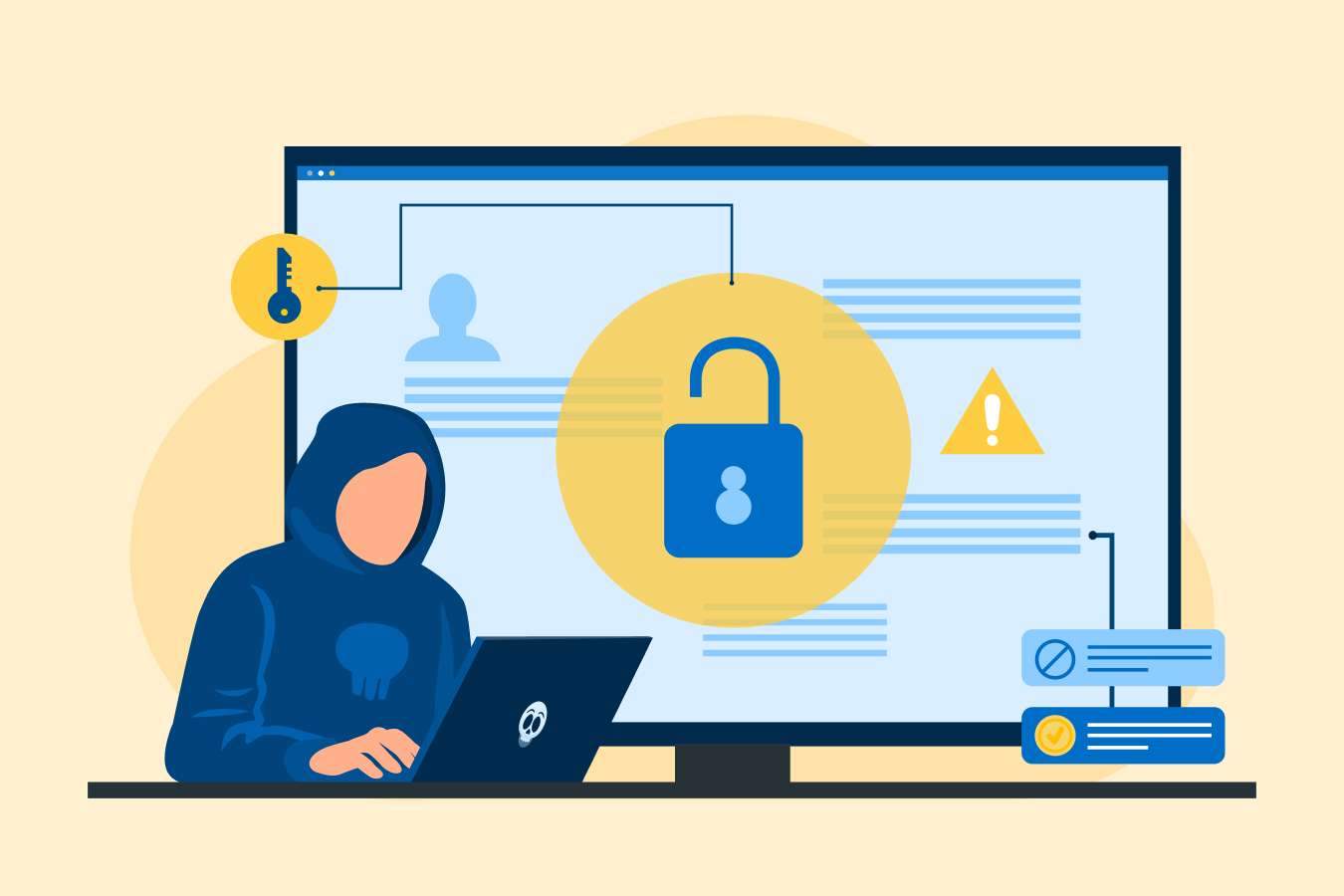Blockchain in Healthcare: Revolutionizing the Healthcare Industry
According to a study, the global blockchain market is expected to reach close to $80 billion by 2027 and the global healthcare market is expected to touch $11 trillion by 2025. The healthcare sector needs technological innovations that can completely transform how healthcare is provided, given the growing volume of data, security issues, and demand for transparency. One technology that is causing a stir in the healthcare sector is blockchain technology.
Many problems that the sector is currently facing can be solved by blockchain technology. It has the capacity to improve data security and simplify procedures. So, let’s understand how Blockchain in healthcare can help us advance in this sector.
What is Blockchain Technology?
Blockchain technology offers secure and open record-keeping of transactions or data through a distributed and decentralized digital ledger. Each block in the chain has a distinct record of transactions or other data, and they are connected to form a chain. It is extremely secure and impossible to tamper with since the data or transactions in the blocks cannot be changed without affecting all the blocks that follow them in the chain.
One key characteristic of blockchain is the decentralized nature of blockchain technology, which means that it doesn’t depend on a central authority or middleman to manage transactions or data. Instead, transactions are verified and entered into the ledger using a network of computers, called nodes. The ledger is duplicated throughout all of the network’s nodes whenever updates are made, ensuring that everyone has access to the most recent and accurate version of the ledger. Each node has a copy of the ledger.
A variety of industries and use cases have benefited from blockchain technology such as supply chain management, identity verification, voting system, healthcare, etc.
How Can We Use Blockchain in Healthcare?
Blockchain has the potential to revolutionize several aspects of healthcare. Here are some areas where blockchain can be applied –
1. Medical Records
Blockchain technology in healthcare can be used to create a secure, tamper-free digital ledger to hold medical records. Patients would be able to own and control their medical data, and healthcare providers would be able to easily access patient data across organizations.
Medical records are currently kept in centralized databases that are open to hacking, and data breaches. Medical records can be spread across a network of computers and secured using blockchain technology, making it difficult for hackers to access and modify the data.
Akiri, for example, is a blockchain-based platform that enables patients to securely access and share their medical records with healthcare providers.
2. Clinical Trials
Clinical trial data can be stored in a decentralized database thanks to blockchain technology. This will increase transparency and confidence between patients, researchers, and regulators. Also, this would lessen the possibility of data manipulation and make it simpler to track the outcomes of clinical trials.
Researchers can share data safely and openly with the help of a decentralized database built using blockchain technology. As a result, it would be simpler to spot patterns and trends in the data, which might produce quicker and more precise answers.
3. Medicine Supply Chain Management
Blockchain can be utilized to provide a safe and open supply chain for medication. As a result, it would be less likely that fake medications would reach the market and it would be simpler to monitor medications from the vendor to the patient.
The application of blockchain in healthcare can also aid in the reduction of waste and inefficiencies. Manufacturers can identify and address inefficiencies in the supply chain by tracking each step in the process. This may result in cost savings for manufacturers as well as lower costs for patients.
Pfizer is already using blockchain technology to improve its efficiency and transparency.
4. Billing and Insurance Claims
Medical billing and insurance claims can be handled securely and transparently using blockchain technology. This reduces the possibility of errors and fraud while also streamlining the reimbursement process.
The current medical billing and insurance claim processing system is frequently cumbersome, ineffective, and prone to mistakes. The procedure can be expedited and made safer with blockchain technology.
Fraud risk can be decreased using blockchain technology for insurance claims and medical billing. The processing of fraudulent claims is made more challenging by building a tamper-proof ledger, which lowers premiums for patients and lowers expenses for insurance providers.
5. Personalized Medicine
Blockchain in healthcare can be used to share and analyze genetic data and can be used to build a decentralized database. In order to provide personalized care, patient-owned data must be gathered and examined. Patients may be able to own and control their data through the use of blockchain, giving them the freedom to share it however they see fit with healthcare professionals and researchers.
It also requires the analysis of data from multiple sources. Blockchain can help access and analyze data from multiple sources.
To learn more about what blockchain is and where it comes from and where it can be applied, pursue a blockchain course.
Challenges for Blockchain Technology in Healthcare
While blockchain can be significantly beneficial, it also has its challenges. Here are a few challenges that can be faced –
1. Regulations
There are many regulations to overcome in the healthcare industry, particularly in the areas of data security and privacy.
Many legal and regulatory regulations, such as HIPAA and GDPR, apply to the healthcare sector. These laws require healthcare providers to safeguard patient information, including electronic health records (EHRs), and to give people access to and control over their data.
Due to the decentralized and distributed nature of blockchain, it might be impossible to guarantee compliance across all nodes in the network, which can be tough.
2. Scalability
Large volumes of data generated by the healthcare industry might burden blockchain networks that are not built for scalability.
Blockchain technologies that support numerous users, big data volumes, and quick and effective data sharing are essential for healthcare companies. Scalability requires a considerable computer and energy investment, which might be difficult for smaller healthcare institutions to meet.
3. Adoption
The adoption of blockchain technology in healthcare industry demands a large investment in infrastructure, training, and continuous maintenance. Due to worries about costs, a lack of understanding, or perceived hazards, healthcare companies may be hesitant to implement blockchain technology.
Proof of concept activities, education, and awareness efforts that highlight the advantages of blockchain technology is necessary for successful adoption.
4. Security
Despite the fact that blockchain technology provides more security and transparency, it is still vulnerable to hacks. To protect against data breaches and assaults, blockchain platforms must make sure that the necessary security measures are in place, such as robust encryption and access controls.
Collaboration between healthcare institutions is necessary to achieve security, as is the creation of security practices and standards.
Conclusion
Blockchain technology in healthcare can completely transform the healthcare industry. The advantages and possible applications are immense. Although using this technology could provide some difficulties, the advantages greatly outweigh the drawbacks.






